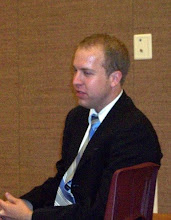Texas Rangers (70-54) starter Rich Harden was pulled from his start against the Minnesota Twins (72-53) with two outs in the top of the seventh inning last night despite not having given up a hit to that point. This comes within a couple of weeks of the Twins pulling starter Kevin Slowey after he had a no-hitter through seven innings. In both cases the bullpen was not able to hold down the combined no-hitter. Both managers said that their decisions were based on pitch counts and wanting to save their respective pitchers' arms for later in the season.
I get that you want to preserve pitchers' arms and all that, but I think too much is made of pitch counts. I think if a pitcher hasn't given up a hit, then he is probably okay to keep pitching until he does. I think a pitcher deserves that. Edwin Jackson, then of the Arizona Diamondbacks (49-76) was allowed to throw 149 pitches by then-manager A.J. Hinch in his no-hitter against the Tampa Bay Rays (77-48) earlier this season. I think that was the right cause and Jackson does not appear to have suffered any ill effects from the additional pitches.
I think too much is being made out of pitch counts and I especially feel this about the way the Nationals (53-72) have handled rookie phenom Stephen Strasburg this year and how the Yankees (77-48) babied along Joba Chamberlain a couple of years ago. I think if Strasburg is pitching well, then he should be allowed to go back out there provided he is putting in the requisite conditioning work. I think the said work would be evident in how well he pitches late into a game -- if he has been pitching well then he deserves to stay out there.
I have seen multiple times where a starter was dealing through 7 or 8 innings but then was removed because "the pitch count got him." One that comes to mind are a game I watched last year when Cliff Lee was pitching for the Indians (50-74) against the Cubs (52-74) at Wrigley Field and was just dealing. However, once he was removed from the game for pitch count restrictions, the Cubs won the game in the late innings. Another is from two years ago when Johan Santana absolutely shut down the Phillies (70-54) for the Mets (62-62) at Shea Stadium through 8 innings. But as you can probably guess the pitch count got him and the Phils rallied for a huge, come-from-behind 9th inning against an anemic Mets bullpen to get the win. I feel that if these pitchers had been left in these games that there teams would have had a much higher percentage chance of winning those ballgames.
I'm glad that my team, the Giants (70-56) seem to subscribe to more of (though probably not wholly) the old-school philosophy of letting their starting pitchers throw a lot of pitchers and remain out there deep into games. A lot of rookie pitchers are being capped at 150 innings and being forced to postpone or miss starts or go to the bullpen in order to not go over their limit. Matt Cain pitched 190 innings in his rookie season and is one of the better pitchers in the National League today. He seems to be doing fine. The Giants commonly let their starters throw 120 pitches, which is more than a lot of teams, and they are rewarded by doing so. Their staff is still one of the most solid in the game.
I think the long-term effects of throwing a lot of pitches in games have been exaggerated. Early in the 20th century it was not unheard of for guys like Christy Mathewson and Walter Johnson to win 30 games in a year -- and I think their careers certainly weren't any worse off for it. Nowadays for whatever reason (paranoia?) that just doesn't happen anymore.
Subscribe to:
Post Comments (Atom)

No comments:
Post a Comment